In a move that’s stirring up the crypto community, Binance, the world’s largest cryptocurrency exchange, has announced plans to overhaul its Alpha process and crack down harder on rule-breakers. The exchange is rolling out stricter measures to ensure compliance, with severe violations now carrying the risk of permanent bans. This update signals Binance’s commitment to maintaining a secure and transparent platform, but it’s also sparking debates about enforcement and fairness. Let’s break down what’s happening, why it matters, and what it means for Binance users.
What’s Changing with the Alpha Process?
For those unfamiliar, Binance’s Alpha process refers to its system for testing and rolling out new features, products, or trading mechanisms in a controlled environment. It’s a way for the platform to beta-test innovations with select users before a full launch, ensuring stability and security. According to recent announcements, Binance is optimizing this process to make it more efficient and robust. While the specifics of the optimization remain under wraps, the exchange hinted at streamlining testing phases, improving user feedback integration, and enhancing security protocols to prevent exploits during early access.
The goal? To deliver new features faster and more reliably while minimizing risks like system glitches or vulnerabilities that could be exploited by bad actors. Binance’s focus on refining the Alpha process comes as no surprise—crypto exchanges operate in a high-stakes environment where downtime, bugs, or security lapses can cost millions and erode user trust.
Stricter Measures and Permanent Bans
The bigger headline is Binance’s tougher stance on violations. The exchange is doubling down on enforcing its terms of service, with a clear warning: severe infractions could lead to permanent bans. This is a significant shift from the previous approach, which often involved temporary suspensions or warnings for first-time offenders. While Binance hasn’t released an exhaustive list of what qualifies as a “severe” violation, we can piece together some likely culprits based on past enforcement patterns and recent chatter on X:
- Market Manipulation: Activities like wash trading, spoofing, or pump-and-dump schemes that artificially inflate trading volumes or prices.
- Insider Trading: Using privileged information to trade against other users, especially during Alpha testing phases.
- Account Misuse: Sharing accounts, using bots to exploit trading systems, or engaging in multi-account fraud to bypass limits.
- KYC/AML Violations: Providing false information during Know Your Customer (KYC) checks or engaging in activities that breach anti-money laundering (AML) regulations.
- Exploiting Alpha Features: Taking advantage of bugs or loopholes in pre-release features to gain an unfair edge.
Binance’s message is clear: play by the rules, or risk losing access entirely. Permanent bans could mean losing funds locked in accounts, access to trading, and participation in Binance’s ecosystem, including staking, lending, or Launchpool events. Posts on X reflect mixed sentiments—some users applaud the move for cleaning up the platform, while others worry about overreach or unclear guidelines leading to unfair bans.
Why Is Binance Doing This?
Binance’s decision comes against a backdrop of increasing regulatory scrutiny and evolving industry standards. Crypto exchanges are no longer the Wild West they once were. Governments and financial watchdogs worldwide are tightening regulations, demanding stricter KYC/AML compliance, and cracking down on illicit activities. Binance, which has faced its share of regulatory battles in countries like the U.S., U.K., and Japan, is likely taking proactive steps to stay ahead of the curve and avoid further legal headaches.
The Alpha process optimization also aligns with Binance’s broader mission to maintain its edge in a competitive market. With rivals like Coinbase, Kraken, and emerging decentralized exchanges vying for market share, Binance needs to deliver cutting-edge features without compromising security. By refining Alpha testing and enforcing stricter rules, the exchange aims to protect its 200 million+ users and maintain its reputation as a trusted platform.
What This Means for Users
If you’re a Binance user, these changes could impact you in a few ways:
- Safer, Smoother Features: An optimized Alpha process should mean fewer bugs and faster rollouts of new tools, like advanced trading options, DeFi integrations, or staking products. If you’re part of Alpha testing, expect more robust feedback mechanisms and possibly stricter eligibility criteria.
- Higher Compliance Bar: Binance’s focus on violations means you’ll need to stay vigilant about adhering to their terms. Double-check your KYC details, avoid using VPNs to bypass regional restrictions, and steer clear of any trading practices that could be flagged as manipulative.
- Risk of Permanent Bans: For most users, following the rules should keep you in the clear. But if you’re engaging in risky behavior—like using bots or exploiting Alpha features—now’s the time to rethink your strategy. A permanent ban could lock you out of your funds and Binance’s ecosystem for good.
- Potential for Growing Pains: Stricter enforcement might lead to hiccups, especially if Binance’s guidelines aren’t crystal clear. Some X users have already raised concerns about “false positives” or bans based on vague criteria. If you’re unfairly targeted, Binance’s appeal process could be your next step, though it’s notoriously slow.
The Bigger Picture
Binance’s move reflects a broader trend in crypto: the push for maturity in a once-unregulated space. As tokenized assets, DeFi, and institutional adoption grow, exchanges like Binance are under pressure to balance innovation with compliance. This announcement also underscores the challenges of scaling a platform that serves millions while fending off bad actors and regulatory heat.
On the flip side, some in the crypto community see this as a double-edged sword. While stricter measures could deter fraud and enhance trust, they might also alienate users who value crypto’s decentralized, permissionless ethos. X posts highlight this tension, with some calling Binance’s approach a “necessary evil” and others labeling it a step toward over-centralization.
Looking Ahead
Binance’s optimizations and stricter enforcement are a wake-up call for the crypto world. As the industry evolves, users will need to adapt to tighter rules and higher accountability. For Binance, the challenge will be implementing these changes without alienating its massive user base or stifling innovation. Clear communication about what constitutes a “severe” violation and a fair appeal process will be critical to maintaining trust.
For now, Binance users should take this as a reminder to stay compliant and keep an eye on official updates from the exchange. If you’re part of the Alpha testing crowd, expect a more structured experience—and maybe a few extra hoops to jump through. As for the broader crypto space, this could set a precedent for other exchanges to follow suit, ushering in a new era of accountability.
What do you think about Binance’s crackdown? Are stricter rules the price of mainstream adoption, or is this a step too far? Share your thoughts below, and let’s keep the crypto conversation alive!
Sources:
- Binance Official Announcements: Binance.com
- Sentiment on X: General user reactions to Binance’s policy updates
- Industry Context: Web insights on crypto exchange regulations and compliance trends



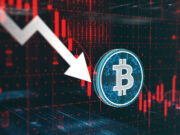
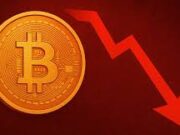






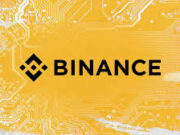




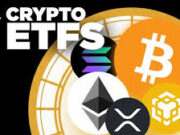



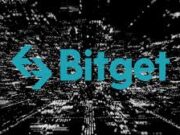


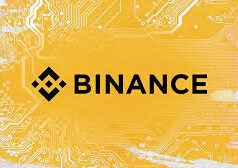




This is good news. Way to many people abusing it.
Some use bots and gather points in hours, just to reap where others have been sowing for months
The best move is to question Binance true motive on this